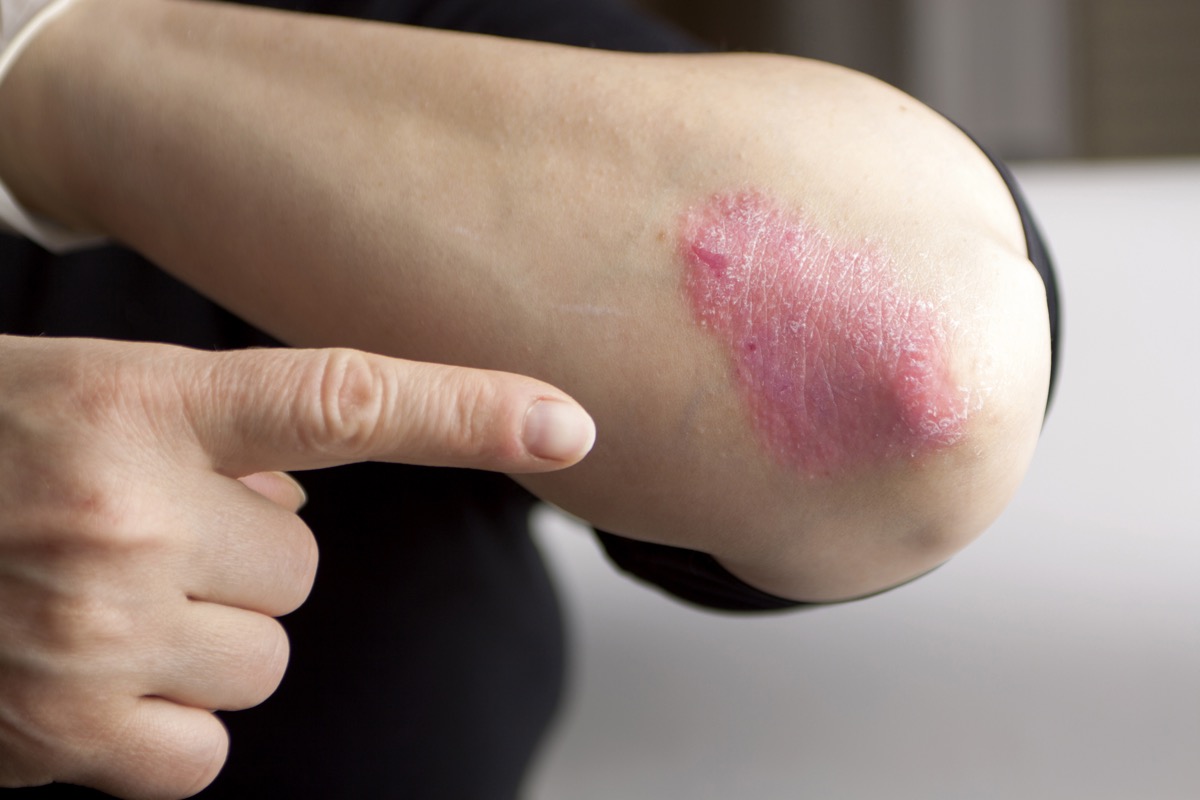These Foods Can Wreak Havoc on Your Skin, New Study Says

Is your skin looking a little blotchy or dull? Or even worse, is that pesky skin disorder flaring up more than usual? According to a new study, your diet could be to blame.
New research from the University of California Davis Health finds that the key to healthier skin and joints may have to do with what you're fueling your gut microorganisms with. More specifically, a diet that's high in sugar and saturated fats (aka processed foods) disrupts the balance of bacteria in the gut and could contribute to inflammatory skin conditions such as psoriasis.
The study, which was published in the Journal of Investigative Dermatology, suggests that switching from a Western diet–or one that's filled with fast food and other heavily processed items—to a more balanced diet can restore gut health. In turn, a diet full of anti-inflammatory fruits and vegetables can then suppress skin inflammation.

"Earlier studies have shown that the Western diet, characterized by its high sugar and fat content, can lead to significant skin inflammation and psoriasis flares," Sam T. Hwang, professor and chair of dermatology at UC Davis Health and senior author of the study, said in a statement. "Despite having powerful anti-inflammatory drugs for the skin condition, our study indicates that simple changes in diet may also have significant effects on psoriasis."
Here are the key takeaways from the study:
First, let's recap what psoriasis is.

Experts believe psoriasis is an autoimmune disease, as red, itchy scaly patches form as a result of immune cells mistakenly attacking healthy skin cells. As many as 30% of people with psoriasis also have psoriatic arthritis, which can entail swelling in the fingers and toes to pain in the joints.
Related: Sign up for our newsletter for the latest healthy eating and food news.
Disruptions in gut bacteria may contribute to inflammation throughout the entire body.

Studies have routinely suggested that the community of microorganisms living in your intestines, known as gut microbiota, play key roles in regulating inflammation throughout the body. This means that fueling gut bacteria with healthy foods is key to maintaining the balance of good gut bacteria. A disruption in microbial balance, known as dysbiosis, can contribute to inflammation in the gut.
Related: These Drinks Can Cause Inflammation, Study Says
Researchers find that dietary choices alone may restore gut microbial balance.

As the researchers note, food is one of the major modifiable factors regulating gut microbiota. To put this to the test, they injected mice with a protein that's generated by immune cells called Interleukin-23 (IL-23) to induce a response that mimics psoriasis and psoriatic arthritis. They fed the mice a diet that was high in sugar and fat for six weeks before administering the protein.
The result? A short-term Western diet such as this one appeared to cause microbial imbalance and predispose mice to both skin and joint inflammation.
"There is a clear link between skin inflammation and changes in the gut microbiome due to food intake," Hwang said. "The bacterial balance in the gut disrupted shortly after starting a Western diet, and worsened psoriatic skin and joint inflammation."
Related: 100 Unhealthiest Foods on the Planet
Switching to a balanced diet can restore gut microbiota.

After injecting the mice with IL-23 inflammatory proteins, they were separated into two groups: one that continued eating the Western diet for another four weeks and one that switched to a balanced diet (for the same duration). Those that consumed a healthier diet had less scaling of the skin and reduced ear thickness than the mice that continued eating the diet that was high in both fat and sugar.
The findings suggest that switching to a healthier diet can have fast results on skin inflammation.
"It was quite surprising that a simple diet modification of less sugar and fat may have significant effects on psoriasis," said Zhenrui Shi, visiting assistant researcher in the UC Davis Department of Dermatology and lead author on the study in a statement. "These findings reveal that patients with psoriatic skin and joint disease should consider changing to a healthier dietary pattern."
For more, be sure to check out Best Supplements for Better Skin, According to Experts.








